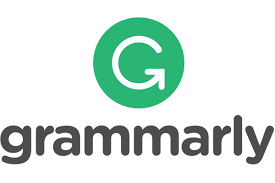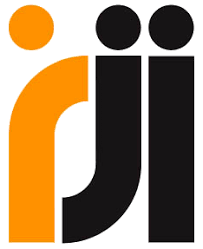DAMPAK PENGETAHUAN DAN MAKANAN CEPAT SAJI TERHADAP KANKER PAYUDARA PADA WANITA
Abstract
Abstract
Breast cancer is a malignant and deadly disease for women. The high number deaths causes by breast cancer comes second after cerucal cancer, some of the risk factors of breast cancer are fast food or junk food and the lack of knowledge of the symptoms. The purpose of this study is to analyze the different of knowledge and history consumed fast food junk food between mother breast cancer first stadium and last stadium at RSUD Dr Kanudjoso Djatiwibowo Balikpapan. The method is riset survey with approach restrospective. The respondents consist of 45 people individuals by using accidental sample technique. The data is obtained from questionare. The data analysis univariat, bivariat analysis with statistic test chi square (x2) and multivariat analysis of logistic regression. the result with minimum knowledge are 25 (55.6 %), who consumed fast food are 34 (75.6 %), also there is a correlation between knowledge toward breast cancer at P value = 0.006, there is a correlation between fast food towards breast cancer at P value = 0.04. on the regression test there is meaningful correlation between knowledge towards breast cancer than fast food where the P value = 0.04 and the result of data analysis obtained and fast food P value = 0.264 The conclusion that the dominant factors of breast cancer is knowledge whereas fast food is the effect of the risk.There fore, health professionals, the agencies to give a socialization, giving information about breast health, to consume healthy food for our body as prevention of breast cancer.
Keyword :knowledge, fastfood, breastcancer
Abstrak
Kanker Payudara penyakit yang berbahaya bagi kaum wanita dan mematikan, Tingginya angka kematian kanker payudara pada urutan kedua setelah kanker rahim. Faktor penyebab resiko kanker payudara,makanan cepat saji junk foof dan kurangnya pengetahuan tanda gejala kanker payudara. Tujuan penelitian mengetahui analisis perbedaan pengetahuan dan riwayat konsumsi makanan cepat saji antara Ibu kanker payudara stadium awal dan stadium lanjut di RSUD Dr.Kanudjoso Djatiwibowo Balikpapan. Metode penelitian survey dengan pendekatan restrospective. Responden berjumlah 45 orang dengan tekhnik Accsidental sample. Pengambilan data menggunakan kuesioner. Analisis data univariat, bivariat dengan uji statistik chi square (x2) dan analisis multivariat uji regresi logistik. Hasil penelitian: pengetahuan kurang baik 25 (55.6%), yang suka makanan cepat saji 34 (75.6%), terdapat hubungan pengetahuan terhadap kanker payudara nilai (p value = 0.006), terdapat hubungan makanan cepat saji terhadap kanker payudara nilai (p value = 0.04). Uji regresi terdapat hubungan bermakna pengetahuan terhadap kanker payudara p value = 0.04 daripada makanan cepat saji p value = 0.264. Kesimpulan: faktor dominan berhubungan dengan kejadian kanker payudara adalah pengetahuan sedangkan makanan cepat saji merupakan efek resiko. Harapan: tenaga kesehatan, instansi terkait dapat mensosialisai, memberikan informasi kesehatan tentang payudara, mengkonsumsi makaanan yang sehat tepat untuk tubuh sebagai upaya pencegahan kanker payudara.
Kata kunci : pengetahuan, makanan cepat saji, kanker payudara
Downloads
Please find the rights and licenses in Mahakam Nursing Journal. By submitting the article/manuscript of the article, the author(s) agree with this policy. No specific document sign-off is required.
- License
The non-commercial use of the article will be governed by the Creative Commons Attribution license as currently displayed on Creative Commons Attribution-NonCommercial-ShareAlike 4.0 International License.
- Author(s)' Warranties
The author warrants that the article is original, written by stated author(s), has not been published before, contains no unlawful statements, does not infringe the rights of others, is subject to copyright that is vested exclusively in the author and free of any third party rights, and that any necessary written permissions to quote from other sources have been obtained by the author(s).
- User Rights
Mahakam Nursing Journal's spirit is to disseminate articles published are as free as possible. Under the Creative Commons license, Mahakam Nursing Journal (MNJ) permits users to copy, distribute, display, and perform the work for non-commercial purposes only. Users will also need to attribute authors and Mahakam Nursing Journal (MNJ) on distributing works in the journal and other media of publications.
- Rights of Authors
Authors retain all their rights to the published works, such as (but not limited to) the following rights;
- Copyright and other proprietary rights relating to the article, such as patent rights,
- The right to use the substance of the article in own future works, including lectures and books,
- The right to reproduce the article for own purposes,
- The right to self-archive the article,
- The right to enter into separate, additional contractual arrangements for the non-exclusive distribution of the article's published version (e.g., post it to an institutional repository or publish it in a book), with an acknowledgment of its initial publication in this journal (Mahakam Nursing Journal (MNJ)).
- Co-Authorship
If the article was jointly prepared by more than one author, any authors submitting the manuscript warrants that he/she has been authorized by all co-authors to be agreed on this copyright and license notice (agreement) on their behalf, and agrees to inform his/her co-authors of the terms of this policy. Mahakam Nursing Journal (MNJ) will not be held liable for anything that may arise due to the author(s) internal dispute. Mahakam Nursing Journal (MNJ) will only communicate with the corresponding author.
- Royalties
Being an open accessed journal and disseminating articles for free under the Creative Commons license term mentioned, author(s) aware that Mahakam Nursing Journal (MNJ) entitles the author(s) to no royalties or other fees.
- Miscellaneous
Mahakam Nursing Journal (MNJ) will publish the article (or have it published) in the journal if the article’s editorial process is successfully completed. Our Editors may modify the article to a style of punctuation, spelling, capitalization, referencing and usage that deems appropriate. The author acknowledges that the article may be published so that it will be publicly accessible and such access will be free of charge for the readers as mentioned in point 3.












